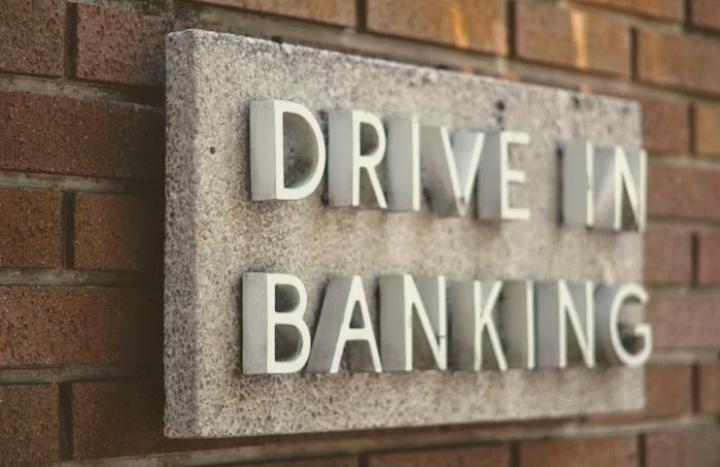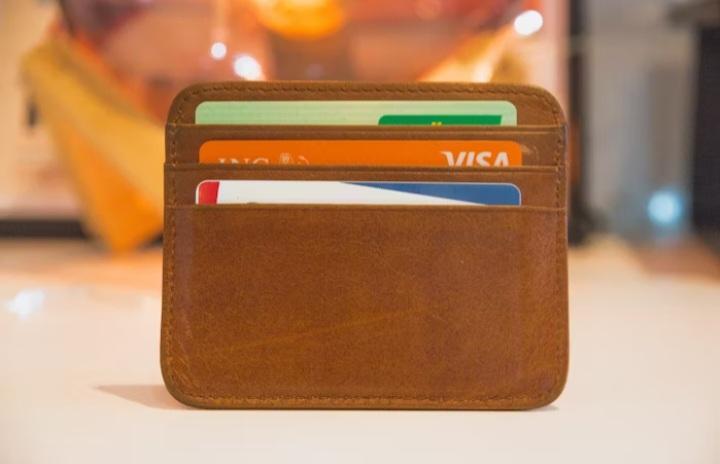Choosing the best bank account can be a daunting decision. This decision could even be more daunting if you are a newbie in the UK or seeking a new choice for better financial management. The timely introduction of new banking features, incentives, and other benefits creates more competition among banking sectors in the UK.

As such, new customers can enjoy fantastic top benefits, including existing customers looking forward to switching fully to their current account. These competitive benefits pose more challenges for users when deciding on the best choice. This article will help you hasten your decision when choosing the best bank account in the UK.
What is a current account?
It is an account type for financial safekeeping and management. A
current account
provides effortless means of paying recipients (such as debit cards and standing orders) while receiving money from them. As an owner of this account, you will receive a debit card for payments and withdrawals, which is usable on a cash machine. A current account owner may also use other financial products, including savings accounts. You can generally pay into other financial products using this account type.
Current bank account creation
Generally, a potential bank user has two options, regarding creating a current bank account: online or by going to the nearest branch. Alternatively, you may open an account using a smartphone, as supported by some banks. But the easiest way to do this is to fill out an online application form. You will answer some questions, mainly about your financial situation. One incredible advantage of this option is that it only takes a few minutes to complete, except in cases where you must tender an ID or payslips (this is rare in most cases).
During application, banks will demand you agree to their credit-checking whether you request a loan or not. Banks usually do this to verify your personality claims by sourcing your information from credit reference agencies. While this may seem unessential, it is the legal responsibility of banks to confirm they are not facilitating customers' plans to launder money.

Tips for decision-making when choosing a top bank account
-
A giant step to choosing the best bank account in the UK is to compare and weigh top offers from different banks to get the best deals. Be attentive to the offers, including cashback, rates, insurance, etc. Find out which of these features meet your long-term goals.
-
Compare the account opening process of different banks before settling for anyone. Also, find out the account management process. If you are digital savvy, app-only banks may be the better choice. The nearest bank is a better choice if you will need physical assistance;
-
Confirm whether you meet all the eligibility requirements. Some accounts charge you for use, and you may have to pay some money to be eligible for some top offers and features. Lastly, some banks prioritise good credit scores to qualify for fantastic benefits.
Bank account creation as a UK and a non-UK citizen
The UK banks compel potential account owners to have certain documents in place before they can have a personal account. Before opening an account, you must have the following in place:
-
Address proof;
-
Identity proof.
However, your account choice may demand you tender further documents apart from the listed ones above, depending on your bank. Any of these under-listed documents can serve as proof of identity:
-
Biometric Residence Permit (BRP);
-
ID card;
-
Driver's license;
-
Residential permit;
-
Passport.
On the other hand, citizenship isn't mandatory for bank account creation, if there are necessary documents. A few banks usually allow foreigners to create a standard current account if they have their (BRP).
For address verification, these documents are also applicable:
-
Mortgage settlement (you may also substitute this for rental agreement);
-
Current council tax bill;
-
Bank statement (if you have a recent credit card in this situation, you may also use it instead)
-
Utility bill (a very recent one)

Although the above credentials are widely accepted, some banks may demand more documents for address verification. Therefore, you must find out what your bank choice demands. The most important aspect is to tender the most recent credentials. Tendering recent files speeds up the verification of your residence. Note that these two documents for both physical and online branches must be available for account creation.
UK's Top Current Accounts
The UK has dominant banks, the same way they are available in most countries. Account creation in the UK shouldn't be a quick decision. Certain factors determine how you will enjoy your British bank account. These factors also help you compare before deciding on which to go for.
You must consider things like monthly charges, rate of interest, and online banking services, to mention a few. The UK has several competitive, popular banks with top-notch features. However, some are regarded as the best because of customer rewards, top benefits, and other features. Below are the top UK banks and their offerings.
|
Account types
|
What makes it stand out?
|
Primary incentives
|
Hits
|
Misses
|
HSBC Advance Account
|
This account is designed for anyone who loves to take loans or overdrafts. It meets your financial needs as an HSBC Advance account owner. Your first £25 comes without an interest. However, subsequent loans higher than the initial amount will attract 39.9% EAR (variable).
The HSBC's Regular Saver Account exposes you to a 5.00% AER for a year when you put between £25 and £250 in your account every month. It also has a Home and Away scheme that gives you discounts on dining, retail, etc., without paying charges every month.
|
-
Zero charges on monthly spending;
-
Linked 5% regular savings account;
-
Discounts
|
-
£25 on loans that come with no interest;
-
Accessibility to loans (subject to status)
-
Access HSBC Regular Saver Account.
|
-
Loans are subject to status;
-
Up to 39.9% AER above £25 for charges when you take a loan.
|
Nationwide FlexDirect
|
You enjoy top offers, including 5% AER in-credit interest when you have up to £1,500 in their first 365 days. Maintaining this amount as a Balance will help you earn £73.
Although subject to status, you can access arrange overdraft without paying interest in the first 365 days. However, you must understand that taking loans after this period means paying 39.9% APR interest.
|
-
Users are not charged for their monthly spending;
-
365 days in credit interest.
|
-
You pay back the exact amount of the loan for the first 365 days;
-
6.50% AER on Linked regular saver account for 365 days.
|
-
This account type does not allow you to cashback or discounted rates;
-
Interest comes with any loan you take after the first 365 days.
|
First Direct 1st Account
|
There is a £250 loan facility without users paying interest subject to status when they open this type of account. With a proven finance score, this account type lets users enjoy incredible deals. As an owner of this account type, first direct supports creating a linked regular saver where you enjoy 7.00% AER. It supports a monthly savers' payment between £25 and £300.
For constant overseas travelers, it may be all you need in a current account since there are no associated changes on debit card use, including foreign withdrawals. However, you may pay charges if you use some ATM that charges certain fees. Users enjoy a fantastic sign-up bonus of up to £175 upon completing their switch as of 22nd of April, 2024. Claiming this offer requires that you must have been directly debited twice. Your first 30-day balance after account creation must not also be less than £1,000. Another factor that may disqualify you from getting this offer is being a holder of First Direct or HSBC, which has been active since the 1st of January, 2018.
|
-
£0 fees on monthly financial activities;
-
£250 on loans buffer.
|
-
7.00% AER on linked regular saver accounts
-
Fantastic service offers;
-
You spend freely abroad;
-
The first £250 loan you take will not require an interest when paying back.
|
-
Existing customers cannot qualify;
-
Loans and offers subject to status
|
Starling
|
Potential users can become account owners within 300 seconds. The digital bank supports mobile registration. You must own a personal account before you can use joint accounts. A fully completed account allows you to execute all banking and financial activities via the app. You can execute activities such as card cancellation, address modification, etc.
Spending management is also possible with the expense alert on the app. It also has a virtual piggy feature for summarising your expenses. There is a 15% AER charge on loans you apply for. Having about £5,000 balance means you can enjoy about 3.25% AER.
|
-
Overseas spending is free;
-
No associated fees each month;
-
Instant payment alerts/ tools to track expenses.
|
-
Users enjoy expense tracking tools;
-
Affordable loan fees;
-
Sending money overseas is free.
|
-
Users do not receive any cashback/reward;
-
Users can only withdraw £300 maximum daily
|
Barclays
|
This is a premium account with benefits, alongside certain higher requirements before you can qualify for the perks. A holder's account must have taken in £75,000 gross annual income. Moreover, your savings or investments must have £100,000b in the UK, or have both. Successful account creation implies you can take a loan to the tune of £500 and pay back the exact amount. It is pertinent to state that there is a 35% (variable) if you want to borrow beyond this amount.
There is also Barclays Avios activation, which can earn you £12 monthly. With this specific incentive, you can receive £1,500 monthly Avios, a redeemable gift against British Airways flights. You also enjoy more flight-related bonuses with this account, such as a 7,000 Avios voucher. It also offers a move-up by a single cabin class upon receiving a 7,000 British Airways voucher for your cabin.
An incredible sign-up bonus of 25,000 Avios is also available for grabs when you transit fully from another current account. However, Barclays rewards demand that you fully finalise your switch within 90 days of registering.
|
-
£500 without additional fees when paying back;
-
Avios voucher.
|
-
Loan up to £500, without paying back interest;
-
£0 monthly charges
-
Supports about £2,000 daily withdrawal;
-
£12 Barclay's Avio monthly reward.
|
-
Eligibility depends on having a £75,000 yearly gross salary or having £100k savings.
|
Transiting to a new current account
Transiting to a new account is a manageable task. However, the first significant decision to make. After this, account creation comes next, using any preferable method (online, in-person, etc.). You will tender certain personal details during the creation process, including full name, history of location, and other essential details for identity verification.

While you continue filling out the application form, you will indicate if you are transitioning from an existing current account, including the details on the former account.
The next step is to pick a date to validate the transition. This action will help your bank finalise your registration, taking the balance to the newly created one. Payment details and other vital information will move alongside the transferred information when the set date comes.
New payments that come into the former account, including salary, will be directed by the system to the newly signed-up one. After every switch process has been finalised, the former account is no longer accessible, so you can carry out all monetary transactions on the newly created one. Note that executing transactions is still possible on your former account, until the exact transition date.
Pros and cons of switching
Consider these necessary things when weighing the positives and negatives of transition:
Pros
-
CASS guarantees protection in case an issue arises with the transition;
-
Likely bonuses;
-
There are fantastic deals, including rates on loans, savings, etc., on a freshly created account;
-
The transition to a new one should be swift under the CASS.
Cons
-
The newly created account will only receive part of your loan balance in case you are overdrawn. When this happens, credit checking may be the next factor the bank considers;
-
The newly signed-up account will not receive linked accounts, such as credit cards;
-
Subscribing to certain services requires an account change and debit card details for subsequent use.
Why search for top rates and deals when switching?
While you are enthusiastic about transitioning to a new account, you must also make findings about the available top offers. New customers may enjoy significant sums from some deals, but others may not offer these rewards and rewards when they fully switch.

Beyond fantastic rewards and rates, you can enjoy more features when transiting. You also stand a better chance of enjoying exceptional service and better rates upon moving to a new service provider. Additional rewards when changing to a new provider include improved features and better charge rates on cash or loans. The most important thing is to focus on something other than the immediate benefits associated with switching your account and the associated benefits in the long run.
Can I transit anytime I want?
Moving from one account to another is unlimited, meaning you can transit anytime you feel like. Creating a new one exposes you to enjoying high-quality benefits and rewards. Rates or rewards connected to moving often from one account to the other act as bait for potential users. On the other hand, some banks demand that you must not have benefited from their incentives to qualify for their current benefits.
Keep in mind that whenever you want to sign up for a fresh current account, the bank will mark it on your credit file. On the other hand, too many applications within a short time can also negatively affect your credit score. This is why it is the best idea to only move from one account to the other sometimes. Also, ensure you meet the requirements prior to officially initiating a new registration.
How safe is cash balance?
No need to worry about the safety of your current balance, it is very safe. If you have money from any
FSCS-
supported bank in the UK, your money is safe. Even if the bank is out of operation, this guarantees you up to £85,000 safety in your bank.
However, you must be informed that the FSCS only protects banks. Keeping money with any digital financial service that doesn't collaborate with the scheme may expose you to losses if things go wrong. Ensure that your account is FSCS-protected before you initiate any application online or offline.
What to look for in a new current account?
Beyond making extra money when switching, there is more to consider than rewards only when weighing in available banking options. The following are significant features to watch out for:
-
Security/Protection: This plays a significant role in your finances. Ensure that there are features like online card-freezing if you lose it. Also, features like fraud prevention and payee confirmation will prevent wrong money transfers to any destination;
-
Management: For anyone who executes most of his financial transaction activities online via an app, it could be a better choice to choose an app-based bank when deciding. On the other hand, if you prefer a walk-in to the nearest branch, then a fully app-based bank may not work for you;
-
Overdraft/Loan availability: Current accounts often grant most users access to loans. However, personal circumstances often determine your accessibility to these benefits. As a person who loves to regularly take loans, you must consider an account that will not charge higher rates when it is time to pay back;
-
Promotions/cash back/incentives: Users often enjoy different benefits regarding current accounts, such as cashback, rates, rewards, insurance, etc., when they spend or subscribe to some services. Always remember that cashback-receiving accounts will generally demand you meet a certain monthly deposit threshold. Another notable positive side of this is that you can automatically round up financial activities, allowing linked savings account to get a little cash.
What if an issue comes up with my switch?
There is a lower chance that switching will go wrong. As you switch, your bank will automatically move all your set payments to your newly created account. On the other hand, things may not happen as expected, and you may have issues like unpaid standing orders. Be assured that you are CASS-covered, implying that the new bank will be responsible for paying you back any additional charges incurred.

About CASS
The
Current Account Switch Service
(CASS) is a service designed for account holders to change from one account to another. The service hits the banking industry in 2023 for a hitch-free transition process. The service also fosters healthy competition among English banks in the United Kingdom.
Different entities use it for transition. It works by transiting the payments in your formal account to a newly signed-up one, including the balance. The service guarantees that any switching can be completed within a week. If you execute a new payment setup within one week prior to the set switch date, such payments will not transit to your new account.
While the transition process from the former to the newly signed-up account is automated, you must complete other payment setups, including card payments. This is because of a few changes your details may have received. The service has recorded more than forty banks that signed up using the service for transition, with about 10.3 million already transited users. This implies that CASS covers about 100% of English users' current accounts in the UK.